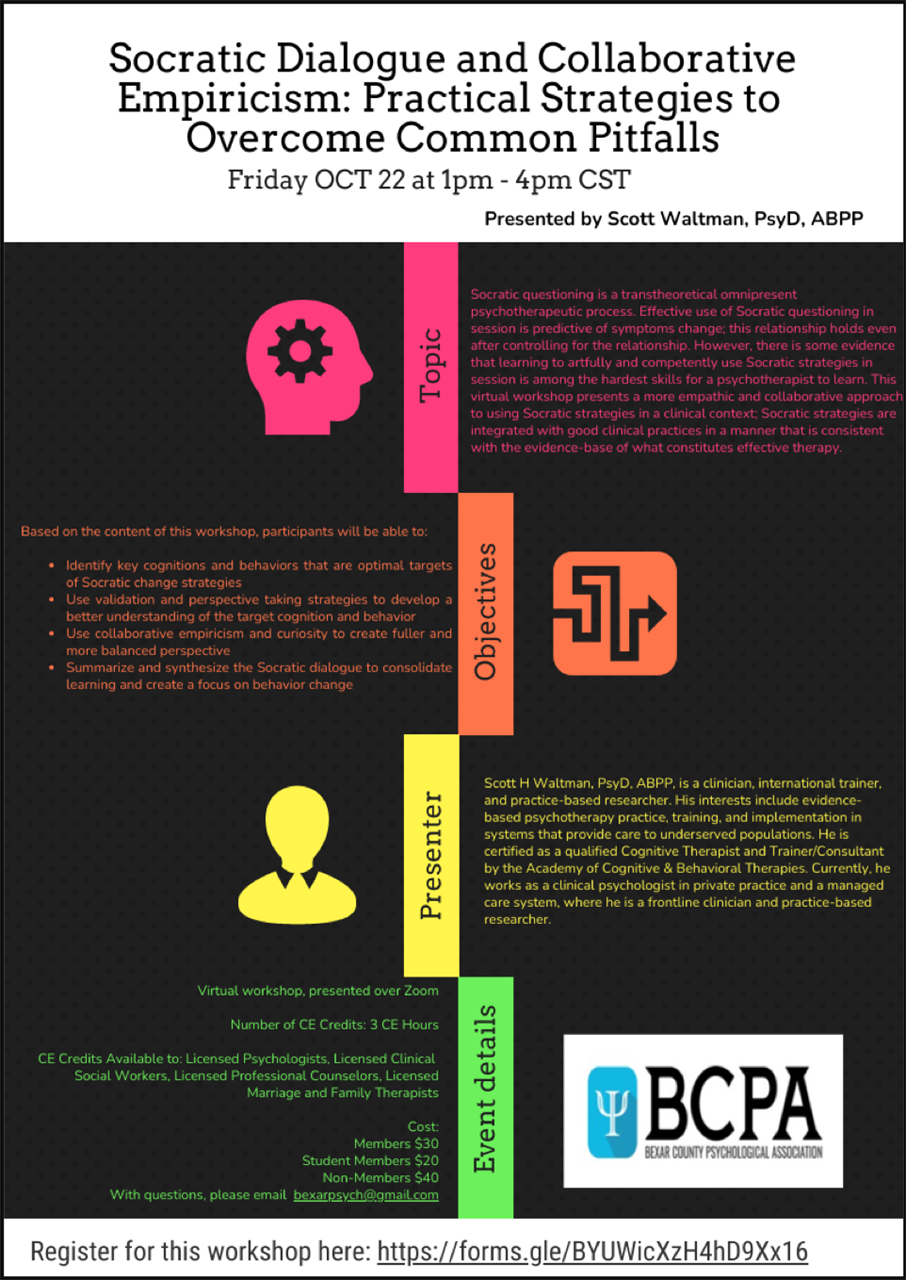Socratic Dialogue and Collaborative
Empiricism: Practical Strategies to Overcome
Common Pitfalls
Presented by Scott Waltman, PsyD, ABPP
About this virtual workshop:
Socratic questioning is a transtheoretical omnipresent psychotherapeutic process. Effective use of Socratic questioning in session is predictive of symptoms change; this relationship holds even after controlling for the relationship. However, there is some evidence that learning to artfully and competently use Socratic strategies in session is among the hardest skills for a psychotherapist to learn. Of course, Socrates was not a therapist and a pure application of the Socratic Method with a perfect fidelity would not be therapeutic.
This virtual workshop presents a more empathic and collaborative approach to using Socratic strategies in a clinical context; Socratic strategies are integrated with good clinical practices in a manner that is consistent with the evidence-base of what constitutes effective therapy. This workshop presents a framework for teaching clients and therapists how to use Socratic cognitive and behavior change strategies. This framework is based on methods that have proven effective training several thousand frontline public mental health therapists in how to deliver high quality cognitive behavior therapy.
Participants will be taught how to use a four-step framework for Socratic questioning. Collaborative empiricism appropriately describes this process of using collaborative strategies to join with the client in applying scientific curiosity to their thought processes. Participants will learn how to use Socratic questioning strategies both within a single session and consistently across a number of sessions to bring about change in patient schema (i.e., core beliefs). Workshop will focus on applied examples and demonstrations.
Scott H Waltman, PsyD, ABPP, is a clinician, international trainer, and practice-based researcher. His interests include evidence-based psychotherapy practice, training, and implementation in systems that provide care to underserved populations. He is certified as a qualified Cognitive Therapist and Trainer/Consultant by the Academy of Cognitive & Behavioral Therapies. Currently, he works as a clinical psychologist in private practice and a managed care system, where he is a frontline clinician and practice-based researcher.
Objectives:
Based on the content of this workshop, participants will be able to:
- Identify key cognitions and behaviors that are optimal targets of Socratic change strategies
- Use validation and perspective taking strategies to develop a better understanding of the target cognition and behavior
- Use collaborative empiricism and curiosity to create fuller and more balanced perspective
- Summarize and synthesize the Socratic dialogue to consolidate learning and create a focus on behavior change
Cost for this workshop:
Student Members $20
Members $30
Register here
With questions, please email bexarpsych@gmail.com.
